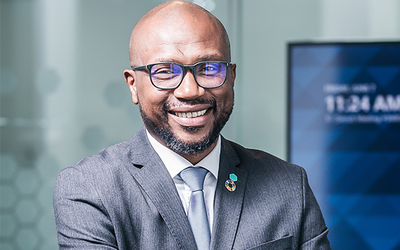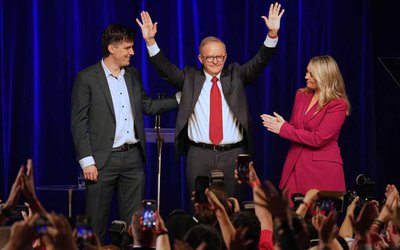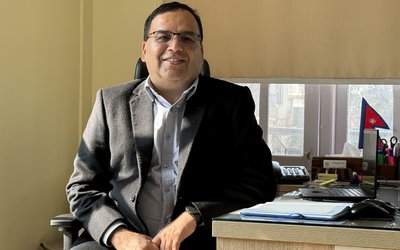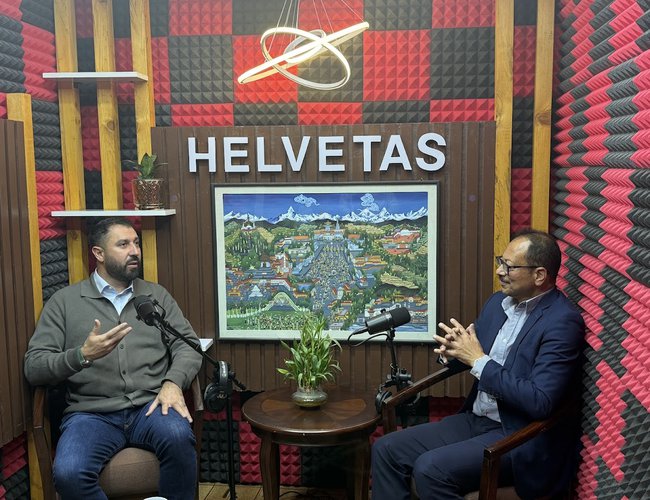
What aspects of Nepal do you find most inspiring?
It is challenging to pinpoint specific elements that stand out as more significant or inspiring than others. The way people utilize their resources for their livelihoods is noteworthy. I have also noticed the challenges associated with traffic management in the city. The urban landscape and the communal sharing of resources are particularly inspiring to me. Ultimately, the most crucial aspect is the capacity of individuals to make the most of what they possess.
Your dedication to enhancing local governance in Kosovo serves as an inspiration for many in Nepal. How do you perceive this exchange of knowledge?
There exist two tiers of government: the central government and the local government. Kosovo comprises 38 municipalities, which range from the capital city, home to over 250,000 residents, to smaller municipalities with populations as low as 3,500. Each municipality enjoys significant autonomy as stipulated by the Constitution of Kosovo. These local entities are pivotal institutions dedicated to serving the populace. The central government aids local administrations by allocating various grants contingent upon their performance. Additionally, we offer supplementary grants to municipalities that demonstrate exceptional performance. At the local level, mayors and council members play crucial roles, acting as vital conduits for the effective provision of services to the community. Our government is the first to successfully complete a full four-year term since gaining independence in 2008, and we are scheduled to conduct elections early next year for another four-year term, during which we will reaffirm our commitments.
In light of Nepal's transition from a unitary to a federal system, and considering the diverse nature of its population in terms of ethnicity, class, caste, and gender, what measures will you implement to ensure that the poor and marginalized groups have equitable access to resources, opportunities, and the fulfillment of their rights?
This experience provided me with valuable insights into the political evolution of Nepal and the process of federalization. Currently, we are engaged in a decentralization effort following our liberation and the establishment of new municipalities, which aims to honor, safeguard, and enhance community interests. Our nation, a small entity in the Western Balkans, has a population of 1.7 million and is situated in a vibrant region where diverse cultures converge. Despite our modest population, we are home to nine distinct communities. The Constitution of Kosovo guarantees the rights of all individuals and communities, ensuring that their needs and rights are addressed, particularly in terms of political representation. Of the 120 parliamentary seats, 20 are specifically reserved for minority groups, with allocations based on population size. Furthermore, the constitution also ensures their representation within the central government.
To begin with, I would like to emphasize the necessity for increased exchanges between our countries. There are numerous opportunities to foster future collaboration by sharing and learning from each other's experiences in governance.
Nepal is a well-recognized country in Kosovo, and similarly, Kosovo is familiar to the people of Nepal, particularly due to the achievements of mountaineers from Nepal. Notably, mountaineer Arineta Mula has transcended boundaries by successfully summiting Mount Everest and several other peaks exceeding 8,000 meters in height.
While our country also boasts numerous mountaineers, their numbers are relatively modest compared to those from Nepal. This disparity has motivated mountaineers like Arineta Mula to visit Nepal and conquer various peaks. We take great pride in acknowledging that Arineta Mula is the first mountaineer to reach the summit of the world's highest peak, in addition to climbing eight other peaks over 8,000 meters in Nepal. Her remarkable achievements in mountaineering serve to strengthen the ties between our two nations.
In terms of integrating impoverished and marginalized individuals into the mainstream, we have implemented various quotas and reservations at different levels to support these groups. Additionally, we have established positive measures to ensure their safety and security. What is the current situation regarding this issue in Kosovo?
Progress cannot be achieved in a single attempt. In our nation, 20 percent of seats in all political institutions are allocated for women and marginalized communities. In the most recent elections, all female candidates successfully gained the support of the electorate. There has been a longstanding practice of reserving seats for women and ethnic minorities. Public offices reflect a balanced representation, with a 50/50 distribution. In the government, among 15 ministers, five are women, and out of three deputy prime ministers, two are women, demonstrating our strong commitment to women's rights and the rights of communities. We have established numerous protections for women, a reflection of Kosovo's historical context, emerging from the Balkan war and the atrocities committed by Serbian leader Slobodan Milošević. Achieving freedom in 1999 and independence in 2008 has underscored our belief that equality is an imperative we must uphold.
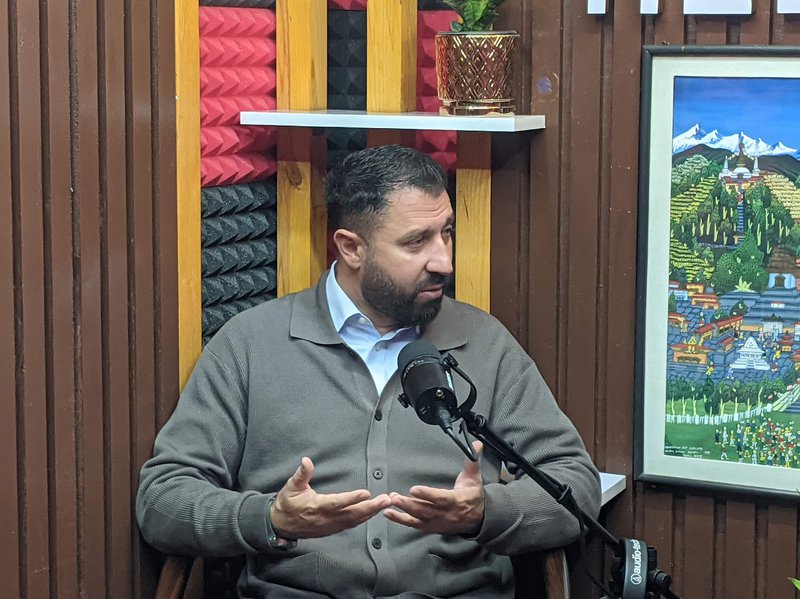
Since gaining independence in 2008, efforts to bridge gender disparities and initiatives to enhance local governance have contributed to this progress. However, I cannot assert that the gap has been entirely closed. We are continuously striving for further advancements, as democracy is integral to our existence. This commitment is evident in every election, where we consistently aim to make progress.
The central government often exhibits hesitance in delegating authority to sub-national entities. In Kosovo, governance is structured into two tiers: the central government and 38 local municipalities. Frequently, local governments face challenges due to insufficient human and financial resources, as well as a lack of institutional and technical capabilities. In various regions worldwide, including Nepal and several South Asian nations, how has your ministry enhanced the capacity of local governments?
This responsibility falls under my ministry. As the Minister of Local Government and Administration, you are tasked with overseeing the municipalities. We are accountable for assessing the development and effectiveness of local governments. Following our evaluations and inspections, we compile and publish reports. Additionally, we have a dedicated department that offers training to local government officials. We have revised certain regulations to introduce new initiatives, such as digitalization, smart city projects, and other pertinent matters. The ministry is empowered to undertake these actions. Furthermore, we conduct regular meetings with local governments to address issues based on their specific needs.
You have initiated efforts in digitalization and e-governance within local governments. Are there any partnerships with other countries, including Nepal, to facilitate knowledge sharing?
There are two key elements to consider. First, municipalities are actively pursuing relationships with other municipalities across Europe and beyond, facilitated through our minister and direct interactions among citizens. Second, since last year, we have been a member of the global Open Government Partnership, which has prompted local authorities to initiate their own membership efforts. They can leverage this platform for training focused on transparency and accountability.
While Kosovo and Nepal differ in geography, history, and socio-economic contexts, they also share numerous similarities. Do you perceive any potential for collaboration between the municipalities of Nepal and Kosovo as sister organizations?
I believe such collaboration is indeed feasible. We are not embarking on a new chapter in our relations. Prior to my visit, Kosovo hosted a delegation of journalists and civil society representatives from Nepal, during which we discussed the situation in Kosovo and its geopolitical context, aiming to lay the groundwork for formal diplomatic relations between Nepal and Kosovo. During my visit, I had the opportunity to engage with ministers, local officials, mayors, and leaders of the Municipal Association, which opens avenues for establishing a friendship group. Nepal is held in high regard in Kosovo, and many of our citizens have traveled to Nepal for climbing and trekking adventures. Both countries possess mountainous landscapes, although Kosovo's mountains are not as prominent.
This partnership has the potential to create new opportunities. A meeting has already taken place between the municipalities, and we anticipate a series of visits among mayors from various cities in Nepal and Kosovo. Our aim is to enhance cultural and economic exchanges across multiple levels in the near future. These efforts are supported by the communities of both Nepali and Kosovo citizens. I am confident that once the Nepali populace and government gain a clearer understanding of the circumstances in Kosovo, the formalization of relations will become feasible. We can initiate mutual people-to-people connections, with government cooperation following suit.
Now, let us discuss Helvetas Nepal, the organization that facilitated your visit to Nepal. We are a committed partner of the Nepali government, receiving support from the Swiss government and other international entities. A similar situation exists in Kosovo, where Helvetas Kosovo is actively involved in bolstering governmental and local authority capacities. What is your perspective on the assistance provided by Helvetas?
We must express our gratitude to Helvetas Kosovo for enabling this visit and for advocating for the establishment of relations with various countries, including Nepal. Our delegation sincerely appreciates the efforts and hospitality extended by Helvetas Nepal in organizing numerous significant meetings and site visits. Helvetas Nepal has played a crucial role in fostering people-to-people relations and promoting a deeper mutual understanding. There exists a promising opportunity for Kosovo and Nepal to cultivate and enhance amicable relations at both the state and community levels.
Given your two-day visit, how do you assess your experience and interactions across various levels? What insights have you gained?
During this visit, my schedule has primarily consisted of formal meetings and dinners. Following our discussions, we have identified opportunities for further collaboration. This trip has yielded very positive outcomes in Nepal and has allowed me to engage with the country and its people. I have found the Nepalese to be exceptionally kind.
What is your perspective on the potential for further enhancement?
Strengthening relationships among individuals, politicians, educational institutions, and partners can significantly broaden the foundation for sustainable connections. We are adopting effective practices, and I would like to express my gratitude for your warm hospitality and the productive meetings.

Keshab Poudel
Poudel is the editor of New Spotlight Magazine.
- FOURTH PROFESSOR Y.N. KHANAL LECTURE: Nepal-China Relations
- Jun 23, 2025
- Colonel JP CROSS: Centenary Birthday
- Jun 23, 2025
- REEEP-GREEN: Empowering Communities with MEP
- Jun 16, 2025
- BEEN: Retrofitted For Green
- May 28, 2025
- GGGI has been promoting green growth in Nepal for a decade: Dr. Malle Fofana
- May 21, 2025

